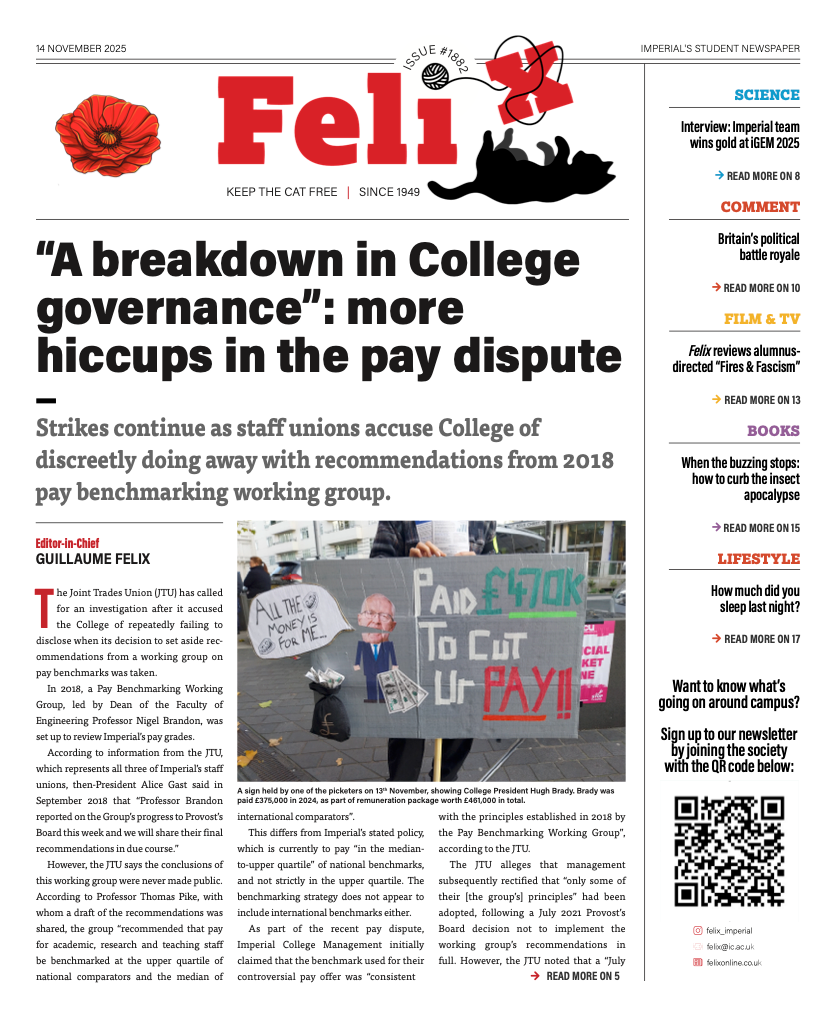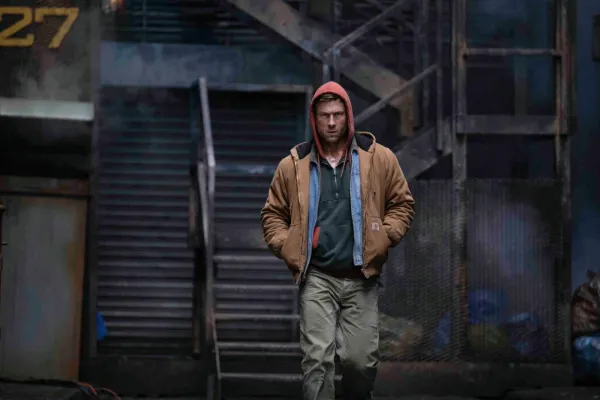Fires & Fascism
A documentary film on wildfires directed by Imperial alumnus Pete Knapp
Katia Zykova:
After completing a PhD on indoor air pollution at Imperial, Peter Knapp immediately started the production of this film. Focusing on the increasing number and violence of wildfires across Europe, Knapp seeks to push public awareness on how not only climate change, but corruption and far-right politics, contribute to their escalation.
The film is a collection of drone footage and interviews, which together manage to push different perspectives. Both remind the viewer how large-scale the damage they cause is, and also how closely they affect the local population.
He starts in Greece, in the Evros region, where the wall which separates Greece and Turkey is shown slicing the land unnaturally. A wildfire devastated the region in 2023, burning down almost 1,000 square kilometres of the Dadia Forest. Lasting for two weeks, it is the largest wildfire ever recorded in Europe. The government laid the blame on refugees who live in the forest – they mentioned nothing of the fact that nonprofit organisations such as the Panhellenic Federation of Volunteer Forest Protection and Firefighting Organisations in Athens tend to have more equipment than official fire fighting services. Or that climate change affecting wind patterns, temperature and humidity all compound the issue of larger, longer and deadlier wildfires. In pointing the finger of blame, they rid themselves of responsibility.
Meanwhile in Sicily, fires have been linked to the mafia, who are known to control much of the wind farm construction business. They start fires strategically so that they burn farmland belonging to local, independent owners; once their land is ruined, the farm owners are coerced into selling it to the wind farm companies – that is, the mafia.
In Portugal, the mass industrial planting of eucalyptus trees, which burn more easily than their forest predecessors, have caused wildfires to start more often and grow much larger. Originally only used for decoration, Portugal is now Europe’s biggest eucalyptus pulp and paper producer; it has the largest percentage area of eucalyptus plantations of any country in the world. The revolving door between chief positions in eucalyptus companies and government positions mean that politicians are turning a blind eye to the wildfires, once again avoiding blame.
Knapp documents all of these situations – more importantly though, he talks to people who live in the local areas. The action the people are taking to combat the fires and their effects is inspiringly shown through montages of protests and through footage joining them in their initiatives. In Portugal, people have started uprooting the eucalyptus mass; in Sicily, a landscape gardener explains how wearing hi-vis jackets at locations where the mafia might start a fire have prevented any fires from breaking out in those regions; and public assemblies such as the one we see held by Lisa, a citizen of Palermo, have encouraged people to make sure their voice is heard.
Overall, this was a very informative, well-researched documentary, where the real merit lies in the space the local people are given to tell their story.

Prithvi Shree Shankar:
What emerged from three months of director and Imperial alumnus Pete Knapp journeying across Europe, gathering testimonies from those living through recurring wildfires, followed by nine months of careful editing, is Fires & Fascism: a documentary shaped by necessity, empathy, and deep political awareness.
The film opens with haunting aerial shots of scorched Sicilian landscapes. Local voices echo in the background, setting a somber tone, before a sudden siren blares and the film’s title flashes across the screen. Knapp appears next, standing before London’s Grenfell Tower, a stark symbol of state neglect. He shares why this story matters to him, not just as a Londoner, but as someone whose family in Canada could be affected by fires thousands of miles away. In this way, the film makes the climate crisis feel immediate and personal.
The documentary journeys through southern Europe: Soufli near the Greece–Turkey border, Spain, Portugal, and Italy. In one powerful moment, a woman at the border says the wall dividing Greece and Turkey is just a distraction, shifting blame away from those truly responsible. Governments and corporations profit while the earth burns. In Italy, locals share how the mafia took advantage of renewable energy projects, building windmills for profit rather than progress. In Portugal, paper companies planted vast eucalyptus forests, calling it reforestation, but in reality, these plantations turned the land into tinder. I’ll admit, I once believed windmills and trees were always signs of hope. Knapp shows us how even the best intentions can be twisted when profit comes first.
Some of the most moving moments explore identity and loss. One woman shares that she is no longer allowed to gather herbs, a simple act that once connected her to the land. Another discusses young activists criticised for causing “disruption,” while they simply seek to prevent disasters that later bring far greater chaos. In Greece, communities have started networks to warn each other at the first sign of smoke – a fragile but inspiring example of human resilience. These stories are framed by a political science professor from the University of Bath, who presents data on the rise of far-right movements across Europe.
Watching Fires & Fascism left me with a swirl of emotions: sadness for what we’ve lost, anger at those who exploit it, and fear of what is still to come. Yet Knapp leaves a glimmer of hope, showing that awareness, solidarity, and truth-telling can still matter in the face of devastation.









